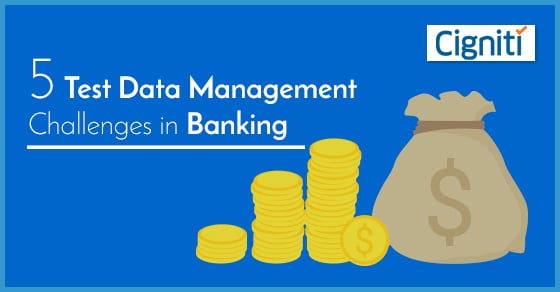Top 4 Test Data Management Challenges in Healthcare Industry
Healthcare applications are well-known for their inherent complexity, heterogeneous structure, variety in data leading to data integration issues and most importantly, the challenge of maintaining a variety of medical plans, enrolments and annual contracts. All of these lead to difficulty in finding adequate test data to support testing for the frequent IT releases.
Let us look at some reasons that make test data management a challenge in healthcare:
Upstream and downstream dependencies:
Dependencies between different systems like provider environment, claims processing, patient records and static data like ICD10 codes, diagnostic codes etc. make it difficult to pull the required test data. Changes made for any release are never solitary in terms of system impact. Due to the interdependency between systems, any minor change has cross-system impacts, at least where testing is concerned. This puts more demand on test data harvesting with necessity to test a wide range of test scenarios. Mergers, acquisitions, Integrated Care Delivery Networks all bring in data that need to be integrated or mapped to resident data. This system heterogeneity makes data mapping and identification very challenging.
Healthcare Standards and Laws:
Like banking and insurance, healthcare is also governed by state and federal laws like HIPAA that make it mandatory for all stakeholders to guard and protect patient information. These laws vary from country to country. Healthcare insurance firms that have a presence across nations need to ensure their applications are always in compliance. Increasing risk of employee data breaches have made it difficult to access production data for the purpose of building test data. Also, regulations are often modified which entails making frequent changes to the applications. Finding adequate test data for frequent and simultaneous releases is a major challenge.
Gender and age specific processing:
Most processing in healthcare is specific to gender and age of patient. Contracts, treatments, diagnostic codes all differ based on gender and age. Test data needs to conform to this: for ex: only the elderly are eligible for geriatric treatments, infants for neonatal procedures and women for gynaecological treatments. This considerably narrows down the range of eligible data for testing.
Contracts and payments:
Healthcare applications are characterised by their massive size, variety and complexity. Contracts also frequently change due to changing patient preferences and market trends. The wide variety of healthcare plans (PPO, HMO, medicare, medicaid etc.) and payment options (fee for service, per case basis, payment from government for aided programs etc.) also add to list of scenarios that need to be tested.
Better testing through better test data management
The success of your testing depends on how good your test data is. A good test data set mirrors your production data and is correctly proportioned to your testing needs. Inadequate test data can undermine your testing whereas large data sets can be cumbersome and may slow down your testing. Test data management may consume a significant percentage of your testing costs but the more accurate the test data, the better will be the quality of your software.
[Tweet “The success of your testing depends on how good your test data is.”]
Cigniti specializes in providing a range of test services for healthcare. Our tried and tested solutions help you deliver a successful project. To know more about our services, write to us at contact@cigniti.com.





Leave a Reply